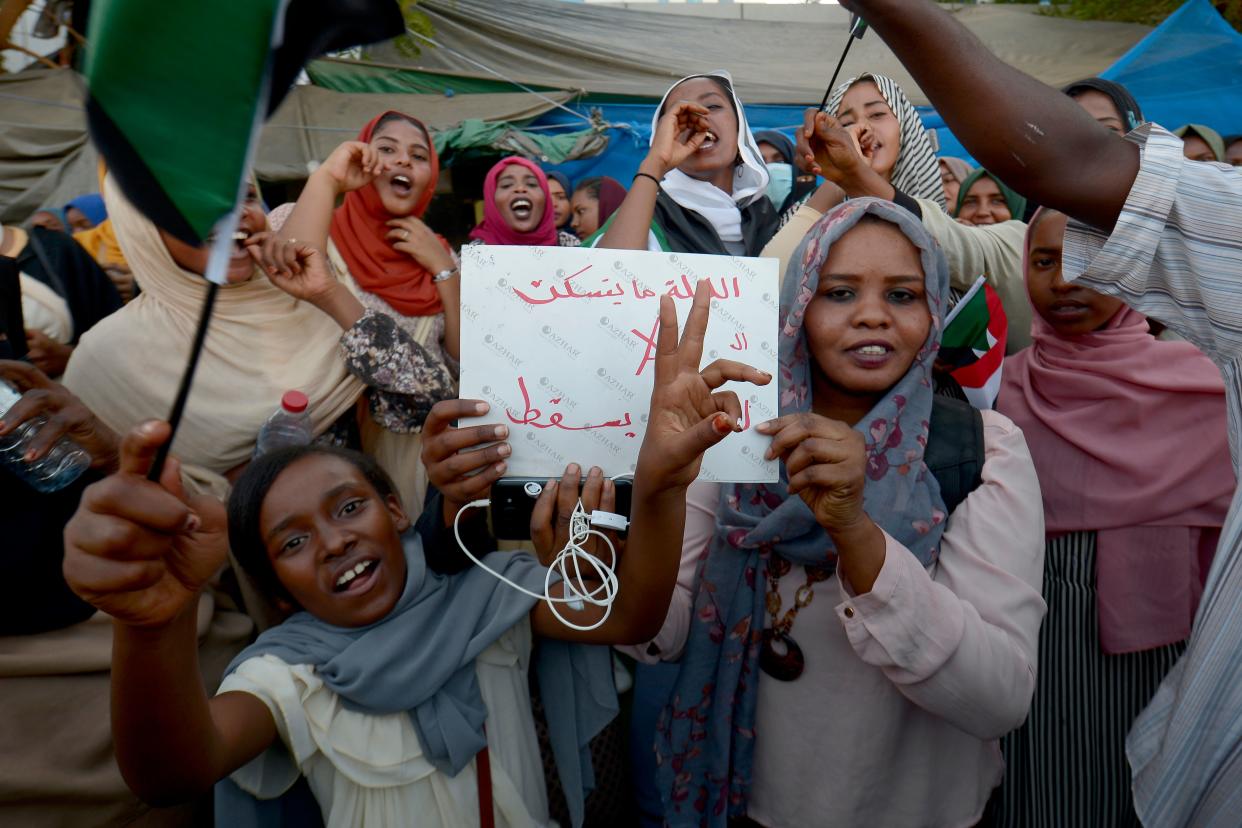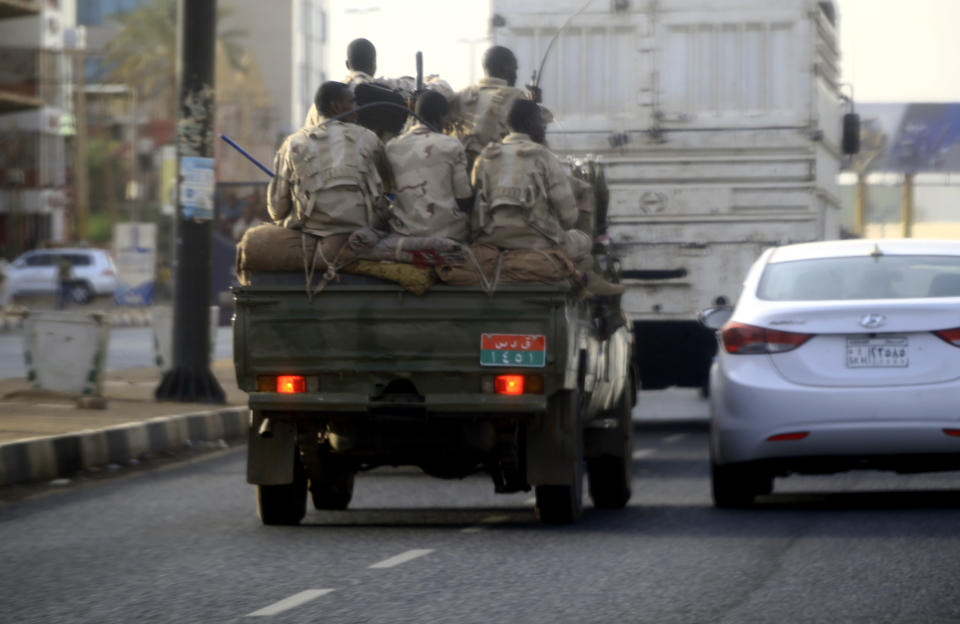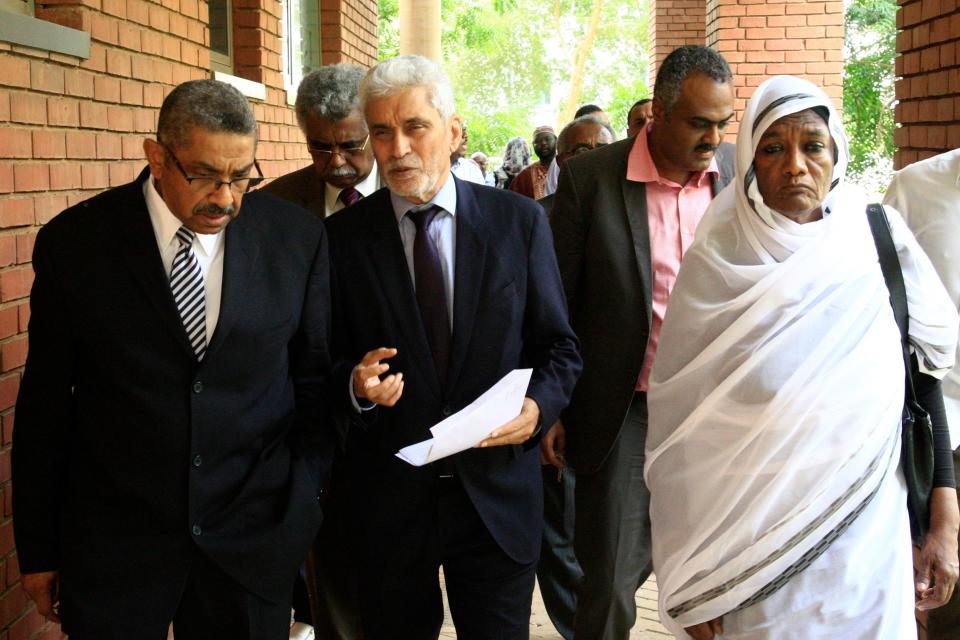Sudan crisis: What you need to know about the bloody political conflict

Sudan is grappling with a political crisis that has seen a death toll of 118 people and rising, after security forces opened fire on pro-democracy protesters in the country’s capital.
And the fact that the movement is being led by women, and young women in particular, is striking a chord worldwide.
The bloody crackdown on demonstrators came after negotiations stopped between representatives for the protesters and the Sudan’s military. Talks began over who would take control of the government after long-time President Omar al-Bashir was ousted in April.
The pro-democracy civilians launched an uprising after the military scrapped agreements with them and say they will force an election in nine months. The protesters wanted a longer transition period to ensure elections would be fair.
Here’s what you need to know about the crisis so far:
How did this start?
In December 2018, many began to mobilize after then President al-Bashir imposed austerity measures in the wake of economic collapse. The imposition of these policies resulted in cuts to bread and fuel subsidies which angered civilian groups in the east part of the country.
Demonstrations began against al-Bashir that expanded into calls for him and his government to be removed after a 30-year rule.
On April 6, protests culminated into demonstrators gathering in front of the military’s headquarters, demanding that al-Bashir be forced out by the army.
A few days later on April 11, he was out.
But hopes for a transition to democracy continued to unravel after negotiations between the military and representatives from the pro-democratic opposition broke down.
Why did negotiations break down?

The opposition had a clear plan to implement three branches of government over a three year interim period, says Khalid Medani, associate professor at McGill University.
Within one branch, a Sovereign Council, the opposition wanted the majority of people sitting on the council to be civilians. They also wanted the head of the council to be a civilian as well. The military wanted 50 per cent of the council to be military personelle along with a military head, Medani says.
“The opposition went on a general strike, basically to pressure the military council,” says Medani, who specializes in Sudanese politics and human rights.
But instead of resuming negotiations with the opposition, the military sought advice from Egypt, Saudi Arabia and the United Arab Emirates. All have stakes in preventing democracy from being a success in Sudan, says Medani.
All are using troops from Sudan to fight the war in Yemen, saving them from using their own citizens.
“The military council wanted to basically stop the negotiation and use force to get their way,” he says, noting the military was emboldened after those visits, leading to the massacre of protesters on June 3.
Medani says the military is attempting to twist the story to blame protesters, characterizing them as not being easy to negotiate with, which is false.
The 2018-2019 uprising is only the first of many, as a pro-democratic opposition has made several attempts since 2011, off of the heels of the Arab spring.
Who is leading the opposition group?
The opposition is made up of civilians but also contains organized parties, including the Sudanese Professionals Association which is made up of doctors, lawyers and health professionals.
What’s most notable about the opposition is that it’s being led mostly by women, particularly young women. The median age in Sudan is around 18-year-old so it’s not surprising that the protesters are young.
But the resilience of young female protesters is underscoring the movement, says Medani, adding that 60 per cent of those demonstrating in the streets are female.
“Women have played a very important and crucial role in the whole protest, since it started,” says Amal Madibbo, an associate professor at the University of Calgary.
Madibbo left Sudan in the mid-1990s to pursue academics in Canada, and says that female participation in political movements is a prominent aspect of Sudanese culture.
The image of a ‘Kandaka’, a Nubian queen that symbolizes a powerful, outspoken woman, has been held onto for generations and is playing a role in these protests, she said.
One video of a woman labeled as a ‘Kandaka’ has gone viral as a symbol for the protesters (see below).
Memories of her mother organizing rallies reminds Madibbo of this movement- except the big difference is the use of social media to draw international attention.
“There was no social media to inform the world about that, but now the younger generation of women are different,” she said.
“What's really impressive is that they were not afraid, they were not hesitant,” says Khalid Ahmed, a lecturer at the University of Toronto.
Women have had enough, as the effects of the 30-year-long regime impacted them more severely, he says. Many have found it tough to find a job, or they are routinely harassed by police.
What has the military done to the pro-democracy opposition?
On June 3, belief that a peaceful transition could occur was shattered when the military opened fire on protesters, killing at least 118. According to CNN, hundreds of others were injured.
Efforts by paramilitary organizations to quell calls from demonstrators have also taken another sinister turn, using rape against female, and some male, protesters.
Hospitals in the capital city of Khartoum reported more than 70 cases of rape following the military attack on the protest, The Guardian reported.
The attacks are to make female protesters too scared to come out and demonstrate, says Medoni.
“The context is to stop the biggest leaders and the participation of women in these protests,” he said.
What has the international response been?

Political pressure has been put on Sudan following the massacre to encourage the violence against the opposition to stop. The African Union, which contains 54 other member states, has suspended Sudan to indicate the diplomatic consequences of the military’s actions.
Sanctions are possible from other nations within Africa if the country doesn’t hand over power to a civilian-led authority.
Global Affairs Canada released a statement of support for the actions of the African Union, while condemning violence against citizens.
“Canada is prepared to do whatever it can to support a civilian-led transition to a democratically elected government in Sudan,” notes the statement.
Demonstrations indicating support for Sudanese civilians has been organized by diaspora communities across the West, which is trying to keep the issue alive on social media as internet is currently cut in Sudan.
What next for the country?
In the next few days, there are hopes that pressure from the international community will force the military back to negotiations with civilian groups.
Whether another round of talks can yield a legitimate democracy for Sudan is another question, noted Madibbo. But many are optimistic that new negotiations will occur while curtailing violence.
“This time is different because there is a lot of international pressure on the government to pass it to civilians,” she says.
“But it doesn't guarantee anything because the military is unpredictable.”


